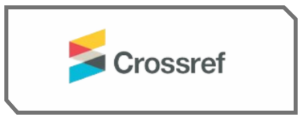Islamic Religious Education as a Foundational Basis for Adolescent Behavior in Central Lombok
DOI:
https://doi.org/10.63265/jser.v2i3.169Keywords:
Islamic Religious Education, adolescent behavior, character formation, Central Lombok, moral valuesAbstract
This study explores the role of Islamic Religious Education (IRE) as a foundational basis for adolescent behavior in Central Lombok. Adolescence is a critical developmental stage where individuals begin to form moral values, identity, and behavior. Islamic Religious Education plays an essential role in guiding adolescents to develop ethical awareness, discipline, and responsibility according to Islamic principles. This descriptive study involved 65 adolescents in Central Lombok, with data collected through a Google Form questionnaire focusing on knowledge of Islamic teachings and behavioral practices. The findings describe adolescents’ understanding of Islamic education, daily religious practices, and moral conduct in social life. The study emphasizes that effective Islamic Religious Education delivered through schools, families, and community institutions can strengthen adolescents’ moral values, self-control, and social responsibility. Strengthening collaboration between educators, parents, and religious leaders is crucial in fostering adolescents who are morally grounded and capable of adapting to modern social and technological challenges.
References
Abdullah, S. (2010). Moral Value Inventory for Muslim Adolescents (MVIMA). ScienceDirect.
Anwar, S. (2016). Peran pendidikan agama Islam dalam membentuk karakter bangsa. Al-Tadzkiyyah: Jurnal Pendidikan Islam, 7(November), 157–169.
Arisjulyanto, D., Ismail, D., & Fuad, A. (2019). Intensity of social media use with premarital sexual behavior of adolescents in SMK 2 Gerung West Lombok. Universitas Gadjah Mada.
BKKBN. (2017). Remaja bonus demografi. Jakarta.
Badrun, B. (2022). The foundation of developing character building in Hamzanwadi Nahdhadul Wathan Diniyah Islamiyah (NWDI) Islamic Boarding School in East Lombok. Jurnal Tatsqif, 20(1), 1–17. https://doi.org/10.20414/jtq.v20i1.3646
Chika Gianistika, R., Tanjung, A., Supriatna, A., Suryadipraja, R. P., & Saepudin. (2024). The role of Madrasah Ibtidaiyah teachers in building students' Islamic character through integrative thematic learning in the digital era. Edukasi Islami: Jurnal Pendidikan Islam, 14(1). https://doi.org/10.30868/ei.v14i01.8140
Darlan, D., Sagaf S. Pettalongi, & Rustina. (2021). The roles of Islamic education in building students’ character within Indonesia public schools. International Journal of Contemporary Islamic Education, 3(2), 21–39. https://doi.org/10.24239/ijcied.Vol3.Iss2.37
Djaelani, S. (2013). Peran pendidikan agama Islam dalam keluarga dan masyarakat. Jurnal Ilmiah Widya, 1.
Furqon, A., & Hanif, M. (2022). Strengthening character education through Islamic religious education: A case in Indonesian context. Tadibia Islamika, 2(2). https://doi.org/10.28918/tadibia.v2i2.6261
Hidayat, N. (2015). Peran dan tantangan pendidikan agama Islam. Jurnal Pendidikan Agama Islam, (1), 61–74.
Izzah, I. (2018). Peran pendidikan agama Islam dalam. Jurnal Pedagogik, 5(1), 50–68.
Kusmiran, E. (2014). Kesehatan reproduksi remaja dan wanita. Jakarta: Salemba Medika.
Maesaroh, S. (2013). Peranan metode pembelajaran terhadap minat dan prestasi belajar pendidikan agama Islam. Jurnal Kependidikan, 1(1), 150–168.
Mareta, M. (n.d.). Urban and rural Madrasah Aliyah characteristics in Lombok Island. Berugak Journal.
Pakpahan, C., et al. (2025). Navigating adolescence matters in Indonesia: Insights and implications. PubMed Central (PMC).
Rahim, & Yusof. (n.d.). Related comparative studies on Islamic schools. repository.uinmataram.ac.id.
Rahmawati, D. (2024). The influence of Islamic-based learning on character formation of students at MTs Nurul Islam Radungkal. Journal of Islamic Religious Studies, 1(2). [Link Implementasi Integrasi Nilai Islam] https://journal.formadenglishfoundation.org
Ratnasari, K., Permatasari, Y. D., & Sholihah, M. (2020). Peran pendidikan agama Islam dalam pembentukan karakter sosial dalam bermasyarakat. Falasif, 11(September 2020), 153–161.
Research on the making and transformation of Islamic education in Lombok. (n.d.). ResearchGate.
Rohima, S. (2019). Peran pendidikan agama Islam dalam era industri 4.0. Ittihad, IV(1).
Samsudin. (2019). Peran pendidikan agama Islam dalam membentuk kepribadian di era disrupsi. Tribakti: Jurnal Pemikiran Islam, 30, 148–165.
Saepudin, A., Aprilianti, D., & Asbari, M. (2023). Character education in Islam: The role of teachers in building Islamic personality in elementary schools. International Journal of Science and Society, 5(5), 1172–1185. https://doi.org/10.54783/ijsoc.v5i5.1266
Sobry, M. (2022). The management of student moral development: Ihya' Ulumuddin Islamic Boarding School, Masbagik, East Lombok. International Journal of Science and Society.
Yuhana, A. N. (2019). Optimalisasi peran guru pendidikan agama Islam sebagai konselor dalam mengatasi masalah belajar siswa. Jurnal Penelitian Pendidikan Islam, 7(1).
Zulkifli, N. (2022). Moral values application in Islamic education teaching. MDPI Proceedings.
Asty Wieke, E., Desi Lestari, Z., Zamarul Hadi, Yuriska, Putri Nuraini, U. M., & Amin R. H. (2024). Analysis of the role of Islamic religious education in the formation of adolescent character. Cendikia: Media Jurnal Ilmiah Pendidikan, 15(4). https://doi.org/10.35335/cendikia.v15i4.6182
Downloads
Published
How to Cite
Issue
Section
License
Copyright (c) 2024 Journal of Social And Education Research

This work is licensed under a Creative Commons Attribution-NonCommercial 4.0 International License.










